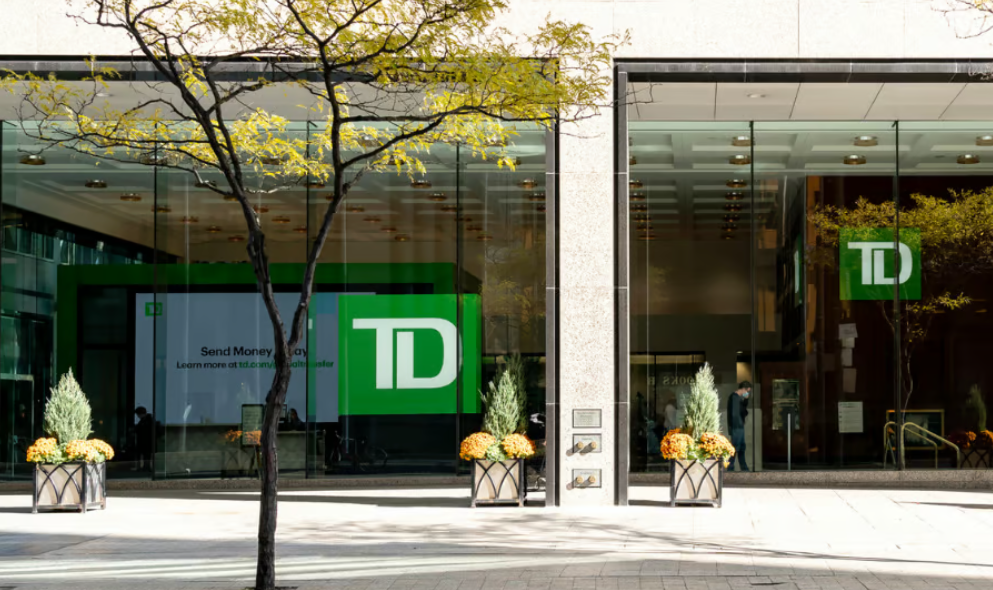

The dark cloud that has been hanging over TD Bank since it was first reported to be under investigation by US regulators, may break slightly Thursday according to the Wall Street Journal.
The publication says that the Canadian big six bank may settle charges as soon as today (October 10) that would end the long-running probes into its anti-money-laundering procedures after allegations it failed to pick up activities by drug cartels.
The WSJ reported late Wednesday that TD’s primary US regulator, the Office of the Comptroller of the Currency, could impose a $3 billion penalty and order an asset cap that would restrict the bank’s growth prospects in the US.
Unnamed sources told the WSJ that the settlement would also include the Justice Department, FinCEN, and the Federal Reserve.
It would place TD under a similar monitoring and restrictions regime as Wells Fargo. The Wall Street firm was caught operating fake accounts for customers in 2018 and has since faced curbs on its growth and additional costs to improve compliance procedures.
The investigations have cost TD in both financial and growth terms, derailing its planned takeover of US regional bank First Horizon, weakening its share price, and leading to its first quarterly loss since 2003.
Last month, TD was ordered to pay a $20 million fine plus $8 million to customers after the US Consumer Financial Protection Bureau found it “repeatedly shared inaccurate, negative information about its customers to consumer reporting companies,” which negatively impacted customers’ credit. The CFPB said TD knew about the issues for more than a year before fixing them.
TD has also recently agreed to pay over $20m to settle investigations by US prosecutors and regulators into allegations of a former trader’s “spoof” orders aimed at manipulating the US Treasuries market.

Relationships are key to our business but advisors are often slow to engage in specific activities designed to foster them.

Whichever path you go down, act now while you're still in control.

Pro-bitcoin professionals, however, say the cryptocurrency has ushered in change.

“LPL has evolved significantly over the last decade and still wants to scale up,” says one industry executive.

Survey findings from the Nationwide Retirement Institute offers pearls of planning wisdom from 60- to 65-year-olds, as well as insights into concerns.
Streamline your outreach with Aidentified's AI-driven solutions
This season’s market volatility: Positioning for rate relief, income growth and the AI rebound
